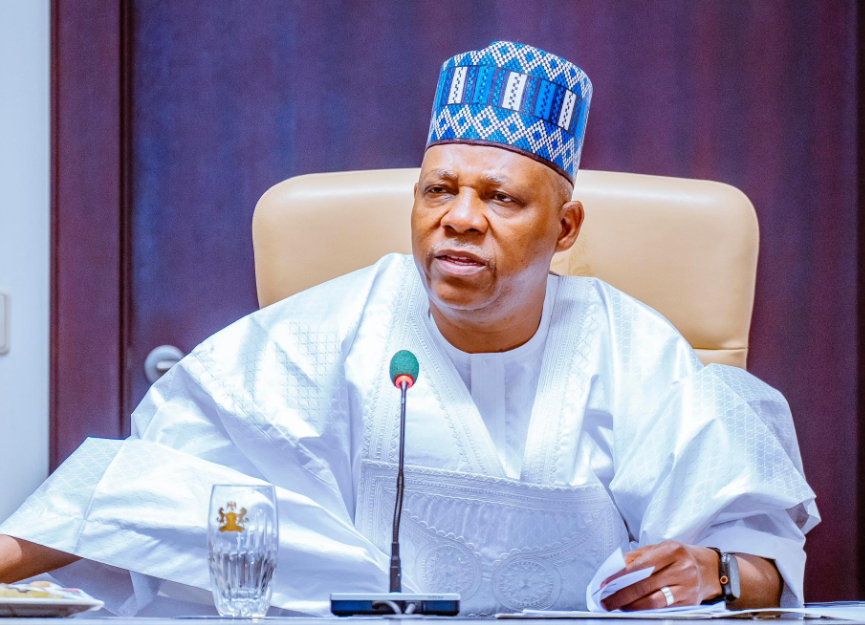[ad_1]
The inauguration of the National Road Safety Advisory Council Committee by the Vice President of the Federal Republic of Nigeria, Kassim Shettima, marks an important milestone in Nigeria’s pursuit of road safety.
The Federal Republic of Nigeria consists of 36 states, the Federal Capital Territory, Abuja, and 774 local government areas. With a total area of 923,768 square kilometers and a population of well over 170 million people, Nigeria is the most populous country in Africa, the most populous black nation, and currently the seventh most populous country in the world.
The total road network is estimated at 200,183 km, of which 36,183 km are federal roads, 32,000 km are provincial roads, and 132,000 km are local roads. As of 2019, this has given Nigeria the status of the country with the second largest road network in Africa. More than 95% of urban transport in Nigeria takes place on roads, and approximately 70% of journeys are made on public transport.
This heavy burden on the road transport sector has made not only traffic management but also safety management on Nigeria’s roads a very difficult task.
The fact is that no single government or agency can boast the sole ability to combat the threat of road traffic accidents and ensure road safety. Therefore, the task of road safety requires a collective effort. It requires the joint efforts of both the public and private sectors, civil society organizations, non-governmental organizations, religious groups, and especially traditional organizations.
This analysis highlights the potential impact of the NaRSAC Committee on the implementation of the Nigeria Road Safety Strategy Paper II and provides a comprehensive overview of the potential impact of the NaRSAC Committee on the road transport sector in Nigeria .
Recall that the United Nations launched the Decade of Action on Road Accidents, Injuries and Fatalities at the beginning of the new millennium. This mandate is based on a secure systems approach and leverages five pillars: Safer roads, safer road users, safer vehicles, road safety management and post-crash care. Apart from highlighting achieving a 50% reduction in road accidents, we aim for a world with zero deaths from accidents.
To achieve this feat, member states will develop a 10-year strategy document that identifies key stakeholders, including all levels and departments of government, and assigns responsibilities and roles to all key players. It became mandatory. This led to the development of the NRSS document. The idea behind it is to take a holistic approach to road safety in Nigeria where everyone has a role to play.
NRSS Document II is the second edition of the action plan to improve road safety in Nigeria and harmonize safety management approaches with global best practices. As the first edition (NRSS 2014-2018) reached its final stage in 2018, it is necessary to not only pursue the adopted policy directions, but also to enrich the core content, improve implementation methodologies and generally integrate. A comprehensive review of strategy was required. A huge improvement over the first edition.
NRSS II (2021-2030) therefore advances the progress already achieved and charts the way forward. The NRSS II therefore articulates the multi-disciplinary activities needed to achieve the road safety that Nigeria aspires to and outlines a national roadmap to reduce road accidents and fatalities. The document identifies key strategies including improving road infrastructure, strengthening vehicle safety standards, strengthening enforcement and regulation, and promoting public awareness and education.
The primary responsibility of the NaRSAC Committee is to implement all strategic initiatives set out in the document as a guide for the implementation of road safety in Nigeria. They also coordinate stakeholder engagement, monitor implementation progress, and advise on resource allocation.
The inauguration of the committee will usher in a new dawn for road safety in Nigeria. Among other things, it is expected to strengthen policy coordination and streamline road safety efforts across federal, state, and local governments. Fostering collaboration between government agencies, the private sector, and civil society organizations improves stakeholder engagement. It will also accelerate implementation and accelerate progress towards achieving the goals of the strategic document, as well as increase resource allocation by attracting funding and resources from governments, the private sector and international partners.
As the lead agency overseeing the country’s safety management, the Federal Road Safety Corps has already started taking all necessary measures to ensure the seamless implementation of the documented strategy. Under the leadership of current Corps Marshal Shehu Mohammed, technology implementation and personnel development programs were introduced. This is to ensure that the staff is well prepared to deal with the technical aspects of combat missions against road collisions.
With the creation of this committee, the Corps and the nation are poised for better days ahead. I hope that members will be aware of the challenges ahead and will devote their time to realizing the committee’s mission.
In addition to the aforementioned impact of this launch, the Corps’ corporate strategic objective of reducing road accidents in Nigeria by 5% by the end of 2024 has indeed received a credible boost and the Corps is certain to capitalize on this development. and make Nigeria’s roads safer than they are today.
Clearly, the Corps is now engaging all stakeholders, including government, the private sector and the general public, to support and align with its vision of improving road safety and to ensure that road safety efforts are adequately funded. We are more focused than ever on calling for more funding.
We are committed to improving visibility, performance, rescue response times, technology-driven operations and respect for law-abiding road users. By jointly enjoying a common responsibility as stakeholders, we can do more, act better and support the lives of Nigerians for the ultimate economic growth and development of the nation. This is so that more lives and property can be saved.
Congratulations to the motoring enthusiasts, Federal Republic of Nigeria and FRSC on this great achievement.

